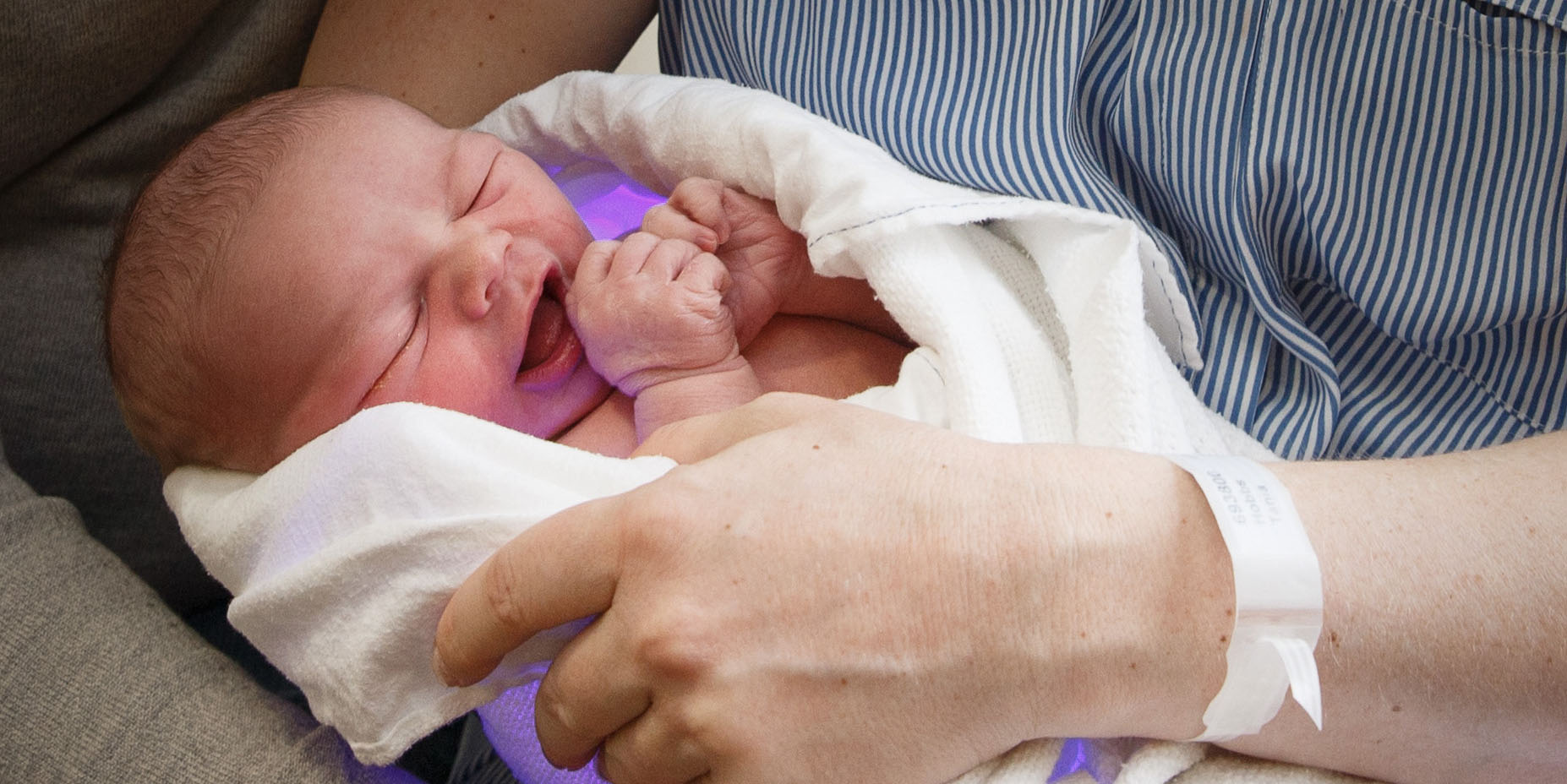
The Royal Women’s Hospital will roll out a $434,000 program to provide testing for jaundice in newborn babies in the home, preventing unnecessary visits to hospital.
Around 60 per cent of newborn babies experience jaundice, when their skin and eyes have a yellowish tinge in the first few days after birth. Jaundice occurs when a chemical called bilirubin builds up in the baby’s blood and tissues.
In most babies jaundice is a normal event, is not serious and will resolve itself quickly without treatment. However, for a small number of babies it can be dangerous and require treatment.
All babies born at the Women’s are screened for jaundice during home visits by a midwife, and many need to be assessed with a blood test. Currently, all babies requiring a blood test have to attend the emergency department for testing. This can disrupt the crucial first week of bonding between mother and baby, during what is often an exhausting time.
Under the new program, the Women’s midwives and nurses will undertake skin screening and blood tests in the home to assess jaundice, and to determine if a newborn needs to be admitted to hospital for treatment with a blue light called phototherapy.
“All women and babies discharged from hospital receive a visit from a midwife within 24 hours and typically receive two to three home visits over the first week,” neonatal paediatrician Associate Professor Sue Jacobs, said.
“One of the midwife’s roles is to assess babies for jaundice. This new initiative means babies will be screened in the home and, if needed, a blood sample will be collected at home. Only babies with early or serious jaundice that requires treatment will need to be admitted to hospital. This avoids lengthy waits in emergency departments for mums and babies and allows babies that don’t need treatment to avoid an unnecessary trip to hospital.”
The project is being funded by the Better Care Victoria Innovation Fund.